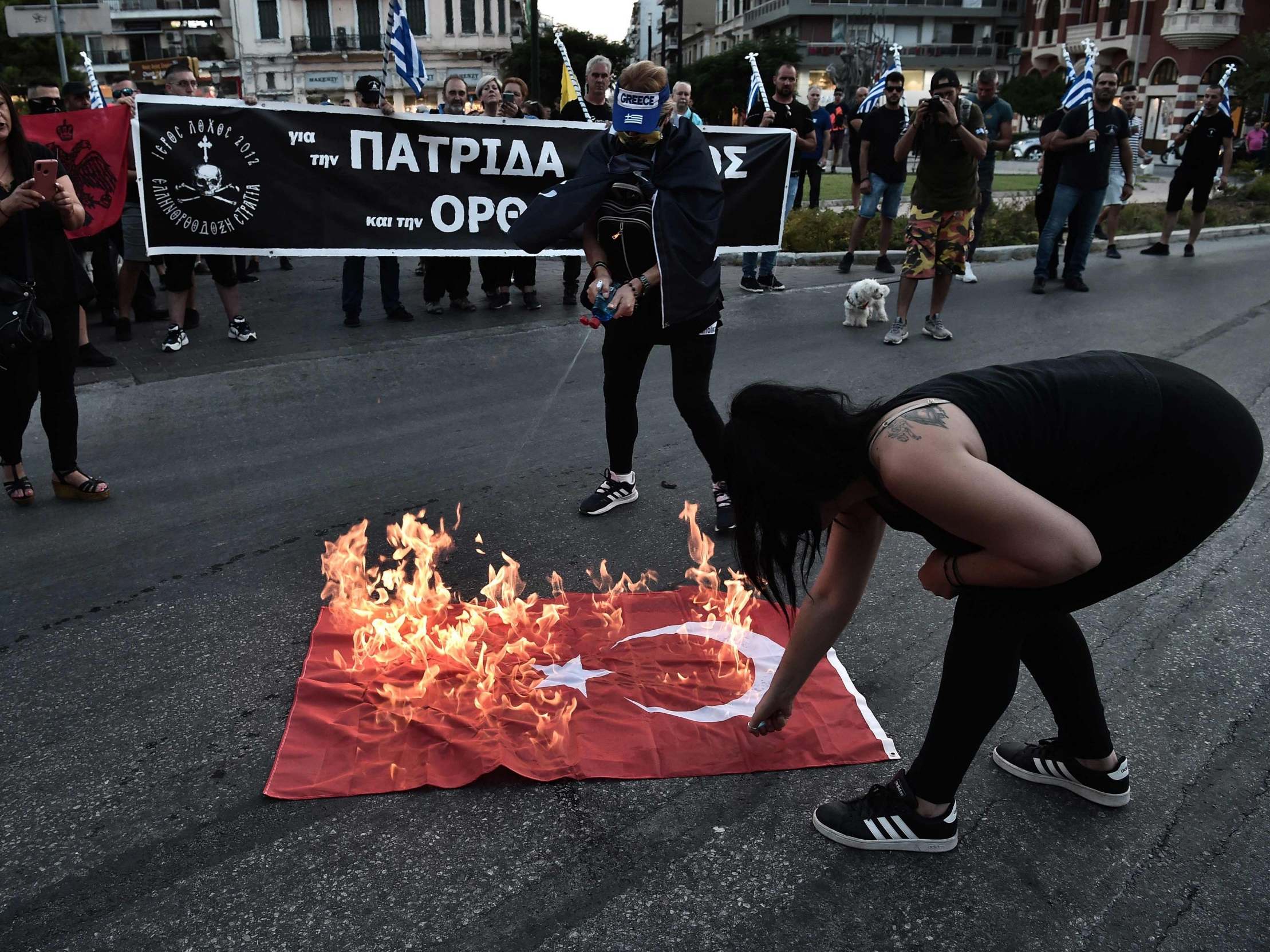Turkey criticises Greek hostility to Islamic prayers in Hagia Sophia
Holy site's conversion is latest to feature in a series of disagreements between two countries

The Turkish foreign ministry on Saturday condemned statements by Greek officials and a flag-burning protest in Greece after the first Islamic prayers in nine decades were held at Istanbul's Hagia Sophia.
“Greece showed once again its enmity towards Islam and Turkey with the excuse of reacting to Hagia Sophia Mosque being opened to prayers,” ministry spokesperson Hami Aksoy said in a written statement.
Greek criticism of the conversion of Hagia Sophia into a mosque after decades as a museum has been scathing, underlining tense ties between Greece and Turkey. Church bells tolled in mourning across Greece on Friday as Turkish President Tayyip Erdogan joined prayers at the building.
In a message marking Greece's 46th anniversary of the restoration of democracy, Greek Prime Minister Kyriakos Mitsotakis called Turkey a “troublemaker”, and the conversion an “affront to civilisation of the 21st century”.
Friday's ceremony sealed Mr Erdogan's ambition to restore Muslim worship at the ancient site, which most Greeks consider as central to their Orthodox Christian religion.
The Turkish foreign ministry said it strongly condemned hostile statements by the Greek government and parliament members to stir up the public, and the burning of a Turkish flag in the Greek city of Thessaloniki.
Hagia Sophia was opened to prayer as a mosque in line with the will of the Turkish people and belonged to Turkey like all cultural assets in the country, it added.
Greece and Turkey disagree on a range of issues from airspace to maritime zones and ethnically split Cyprus. This week they also exchanged barbs over the delimitation of their continental shelves in the eastern Mediterranean, an area thought to be rich in natural resources.
Reuters
Join our commenting forum
Join thought-provoking conversations, follow other Independent readers and see their replies
Comments
Bookmark popover
Removed from bookmarks